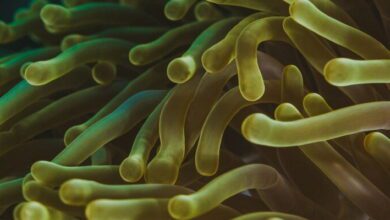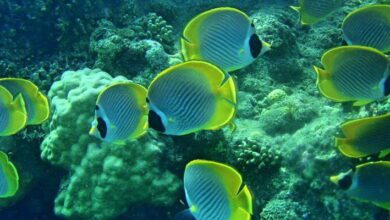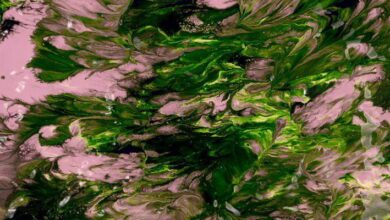Algal Physiology MCQs with Answers

Welcome to the Algal Physiology MCQs with Answers. In this post, we have shared Algal Physiology Online Test for different competitive exams. Find practice Algal Physiology Practice Questions with answers in Biology Tests exams here. Each question offers a chance to enhance your knowledge regarding Algal Physiology.
| Algal physiology would explain the functional parts of algae to understand how their unique cellular structures support them in their roles and performances in aquatic ecosystems. The cell physiology of algae reveals detailed mechanisms describing how algae carry out basic life processes like photosynthesis, growth, and reproduction. The structure of algae really acts as the basis for its physiology. Algae belong to the kingdom of algae and have a wonderful variety of cell forms, from a simple unicellular body scheme to multicell structures highly complex, such as the seaweeds. The algal cell is the basic unit, an inner or outer cell wall, chloroplasts, and central vacuole. Chloroplasts with its photosynthetic tissue play a principal role in conversion of chemical energy into light-induced energy and producing oxygen and other organic compounds of crucial importance for aquatic food webs. Such processes in the cell physiology of algae include uptake of nutrients, gas exchange, and reproduction. Nutrients are taken directly into the cell through the walls of the cells, although in some instances, these cell walls may be permeable for gas exchange- a condition required for photosynthesis. However, the strategies of reproduction among algae are relatively varied-from simple cell division of unicellular forms to complex reproductive cycles of multicellular species. |
Algal Physiology Online Quiz
By presenting 3 options to choose from, Algal Physiology Quiz which cover a wide range of topics and levels of difficulty, making them adaptable to various learning objectives and preferences. You will have to read all the given answers of Algal Physiology Questions and Answers and click over the correct answer.
- Test Name: Algal Physiology MCQ Quiz Practice
- Type: Quiz Test
- Total Questions: 40
- Total Marks: 40
- Time: 40 minutes
Note: Answer of the questions will change randomly each time you start the test. Practice each quiz test at least 3 times if you want to secure High Marks. Once you are finished, click the View Results button. If any answer looks wrong to you in Quizzes. simply click on question and comment below that question. so that we can update the answer in the quiz section.
Download Certificate of Quiz Algal Physiology
On the end of Quiz, you can download the certificate of the quiz if you got more than 70% marks. Add a certificate to your job application or social profile (like LinkedIn) and get more job offers.
Download Algal Physiology MCQs with Answers Free PDF
You can also download 100 Algal Physiology Questions with Answers free PDF from the link provided below. To Download file in PDF click on the arrow sign at the top right corner.
If you are interested to enhance your knowledge regarding English, Physics, Chemistry, Computer, and Biology please click on the link of each category, you will be redirected to dedicated website for each category.




